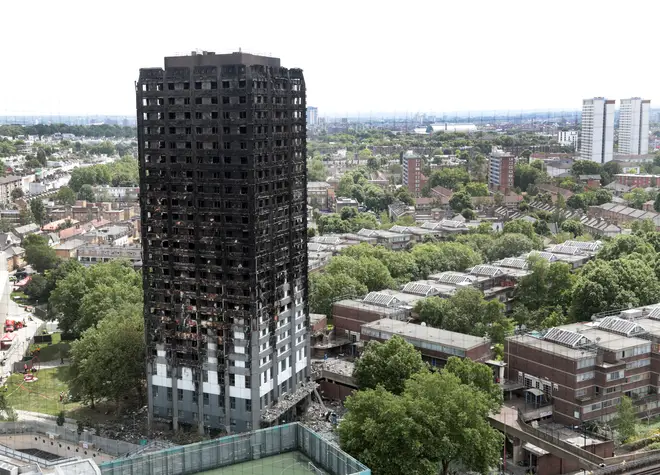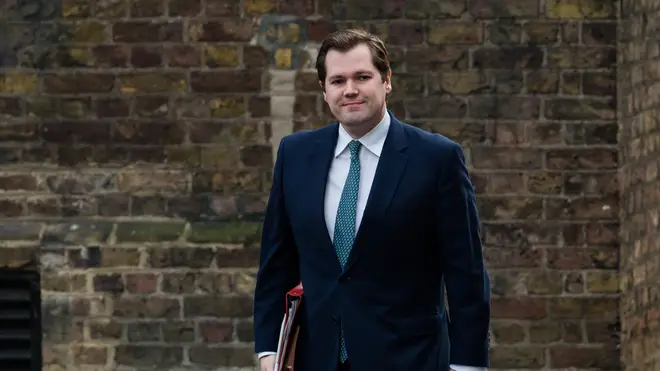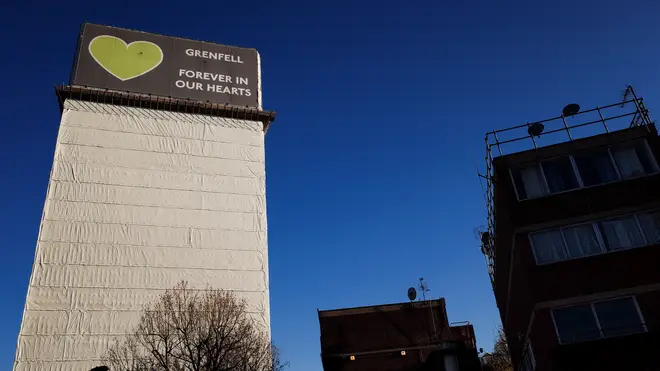
Iain Dale 10am - 1pm
21 January 2020, 19:14

Ten households who lost their homes in the Grenfell Tower disaster are yet to move into accommodation - 31 one months on from the devastating fire.
Housing Secretary Robert Jenrick revealed that one family is still living in a hotel, while nine others are within “high-quality temporary accommodation.”
Speaking at the start of a general debate in the Commons on the Grenfell Tower Inquiry's Phase 1 Report, he said: "Of those households that were within Grenfell Tower, there are now 10 households that have yet to move into permanent accommodation
"Of those 10, one household is within hotel accommodation, the others are within high-quality temporary accommodation."
He added: "They are complex cases and there's a range of individual circumstances behind them, but we're hopeful that many of those will move into accommodation which they feel comfortable in as soon as possible."

Grenfell Tower, in west London, went up in flames on June 14 2017 and claimed 72 lives.
Mr Jenrick said: "We'll be introducing two Bills, one to deal with the immediate fire safety issues that we have identified and the second which will be the biggest change to building regulations in almost 40 years.
"Having met families of the bereaved and survivors, some of whom join us in the gallery today, I remain acutely aware of our responsibility to ensure that they continue to receive the support they need and to see that change which they rightly demand."
Mr Jenrick said the Home Office would introduce the Fire Safety Bill "in the coming weeks so that the necessary changes are made as soon as possible".
Intervening, Tory Sir Bernard Jenkin (Harwich and North Essex) warned: "It does seem to me that in this case, the problems that have been created in the wider building stock and the liability, through no fault of property owners, through no fault of the tenants or the leaseholders, leaves a liability which does fall upon the Government to a degree at least, because otherwise there will be a widening injustice of bankruptcy and failures across a whole sector of the housing because we are trying to remediate a failure of regulation in the past."

Mr Jenrick said the Government would be publishing next month the final result of the testing process undertaken by the department, laying out the evidence as to "safety or otherwise" of a range of different materials.
It would he added "demonstrate I believe that ACM cladding is by far the most concerning material and the one that needs to come off buildings as quickly as possible".
Tory former prime minister Theresa May asked if changes to the protocol had been put in place.
Mr Jenrick replied: "Those issues have been brought to the attention of all of the emergency services, they are now working through these, the Home Office is helping to co-ordinate that work.
"And like (her) I hope that those lessons are learnt as quickly as possible, so if we're ever presented with a tragedy on this scale again all of the emergency services can work together as one in a co-ordinated way."
Local councils should be able to take over blocks of flats with unsafe cladding if the building owners refuse to remove it.
Mr Healey said this was part of Labour's five-point plan in response to the disaster.
He told MPs: "New legislation is required to enable this action where it is needed."
He added: "For privately owned residential homes, where a landlord won't keep those properties up to scratch, a local authority should have the power to take over those properties and make them good."
Boris Johnson should have led the debate on the Grenfell Tower report, Labour has said.
The party's shadow housing secretary John Healey said it is the Prime Minister's responsibility to take action in response to the fire.
He added: "This is a grave and important debate. I welcome the Government time for it but I regret the Prime Minister is not here to lead it.
"The public inquiry into Grenfell reports to him. It is the Prime Minister's responsibility.
"A national disaster on the scale of the dreadful Grenfell Tower fire demands a response, a national response, on a similar scale. This has not happened and that too is the Prime Minister's responsibility."
In October, Mr Johnson led a debate on the first phase of the Grenfell Tower Inquiry.
Former prime minister Theresa May said the next phase of the Grenfell inquiry needs to look at why flammable cladding was used in the building's refurbishment.
She told MPs: "Ministers decide policy, this House will pass legislation. But actually we can pass all the legislation we like, if it is not properly implemented on the ground then it is of no effect.
"It is essential, it seems to me, that Sir Martin Moore-Bick (inquiry chairman) in phase two of his report does what he himself indicates when he looks ahead to phase two."
Labour's Andy Slaughter (Hammersmith) raised the issue of faults with electrical goods causing fires, arguing "this is becoming increasingly a trend".
He said: "When are we going to see actual firm action such as compulsory registration of electrical goods so recall can be effectively done? These are the issues which are the responsibility of Government where the buck shouldn't be passed onto anyone else and where we need not just firm action, but quick action."
Tory Bob Blackman (Harrow East) said: "There have been plenty of consultations, but I am concerned about the way that the Government have not necessarily at all times moved swiftly enough.
"There is a position of people up and down this country who are living in tower blocks with unsafe cladding still today. Two-and-a-half, three years on, that is absolutely unacceptable."